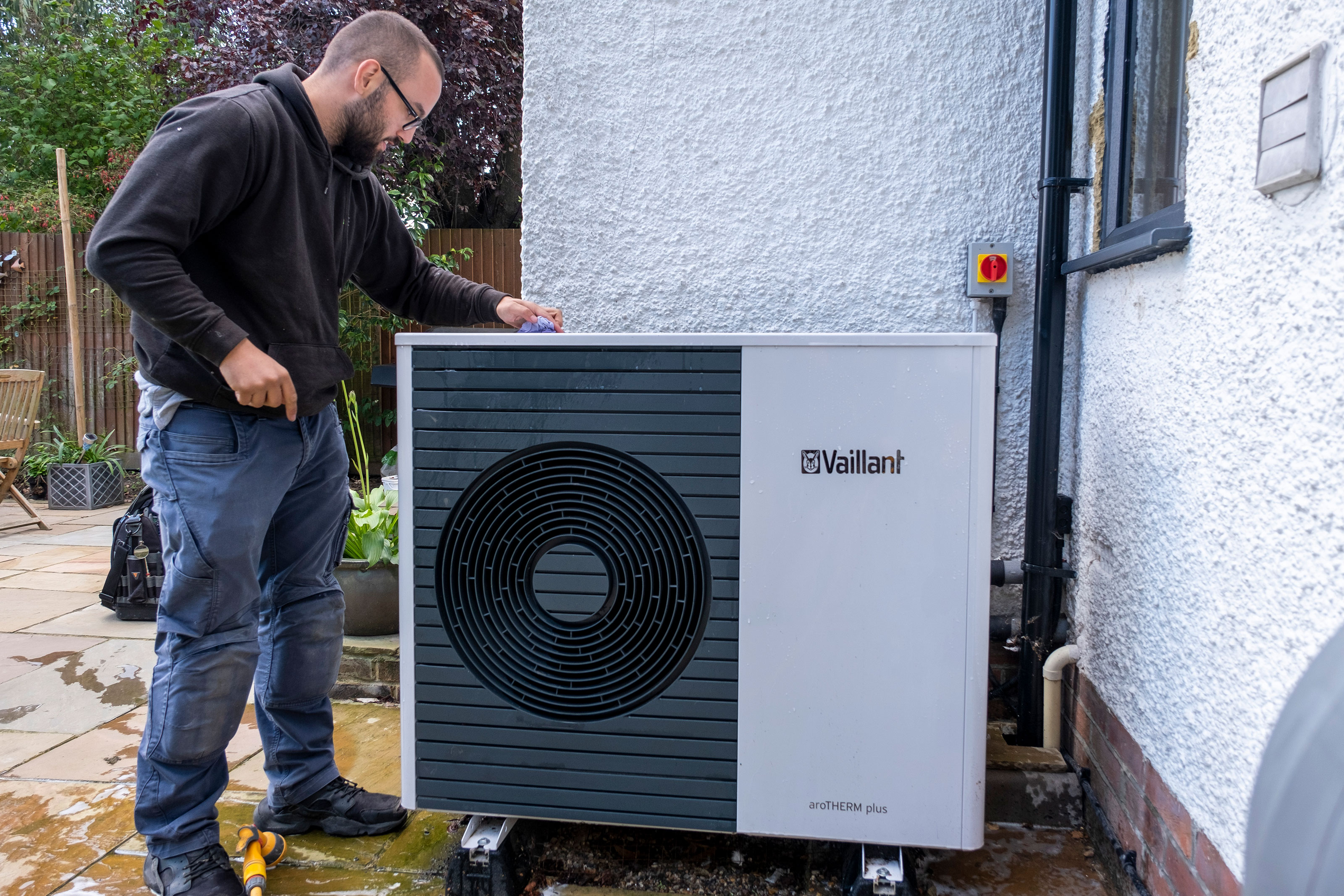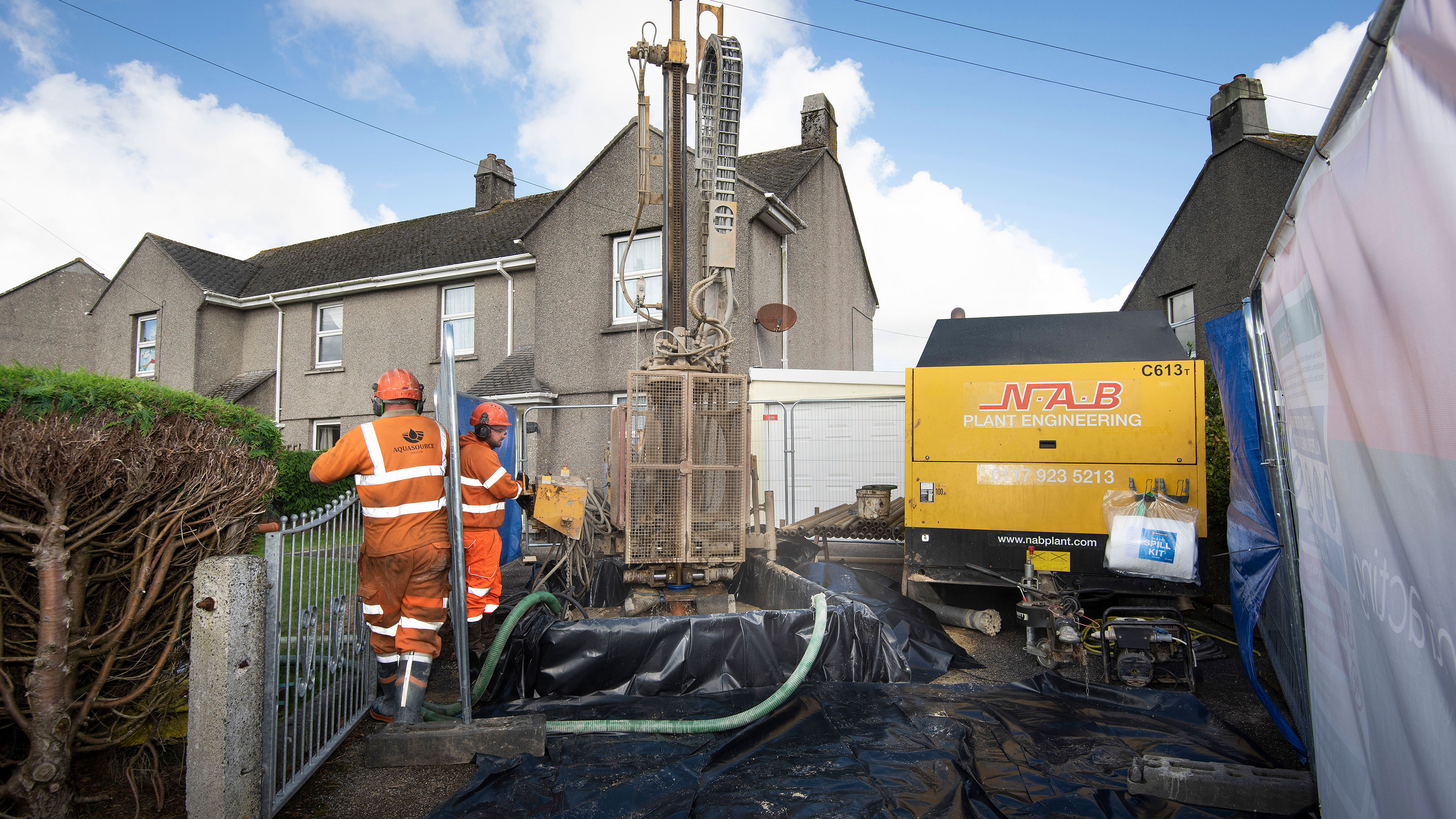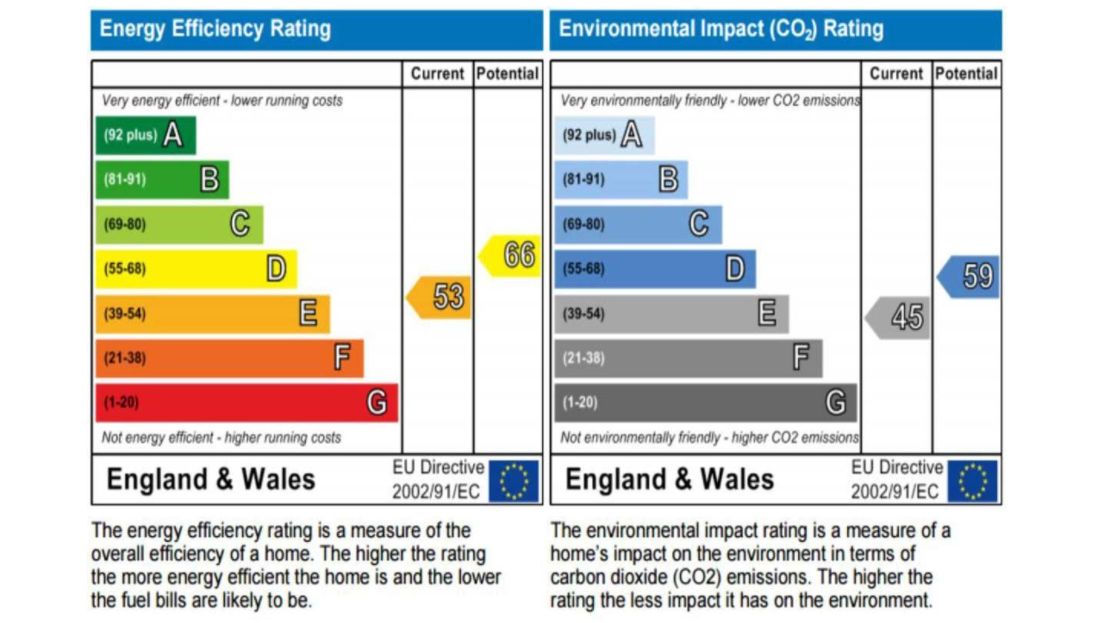Could you get £7,500 for a heat pump? The Boiler Upgrade Scheme explained
More households are switching to heat pumps with grants of up to £7,500 available

The Boiler Upgrade Scheme is helping thousands of homeowners make the switch to energy-efficient heating, with record numbers applying for grants.
Offering up to £7,500 towards the cost of air and ground source heat pumps, the scheme has made low-carbon heating more accessible.
With demand soaring and funding extended until 2028, now is the ideal time to upgrade your home’s heating system and cut energy bills.
What is the Boiler Upgrade Scheme?
The Boiler Upgrade Scheme was announced as part of the government's Heat and Buildings Strategy in 2021 to help cut carbon emissions from homes.
It operates a first-come, first-served basis to those who meet the eligibility criteria.
The scheme officially launched on 1 April 2022 (although applications opened in November 2022), and all eligible low-carbon heating systems commissioned after this date will be entitled to support under the Boiler Upgrade Scheme. The scheme opened for grant applications and payments on 23 May.
How much funding can I receive?
Grants of £7,500 will be available for the purchase of air source heat pumps and ground source heat pumps. For biomass boilers, a grant of £5,000 is available.
The funding is administered through grants, and this means that homeowners are required to pay the difference if costs exceed the grant. However, amid soaring energy price rises, switching to a lower carbon heating system could end up reducing your overall bill.

How do I apply for the Boiler Upgrade Scheme?
Applicants are initially encouraged to register their interest with MCS-certified heat pump installers via the energy regulator Ofgem. A quote will then be agreed for the installation and apply for the grant on your behalf.
The value of the grant will be discounted off the price you pay.
We recommend you get quotes from more than one installer to make sure you’re getting the best value for money.
Redeeming of the voucher will be led by the installer, which will confirm proof of the installation and process the completed paperwork.
You will then need to confirm that the installer is acting on your behalf when you’re contacted by Ofgem.
What type of heat pump can I get?
The following types of heat pumps are supported on the Boiler Upgrade Scheme:
- Ground source heat pumps
- Water source heat pumps (which the government considers in the same tech category as GSHPs)
- Air source heat pumps
Biomass boilers are supported, but only in rural areas with populations of 10,000 people or less. They aren't being offered to people in urban areas.
Your home must also meet high emissions standards to have a biomass boiler installed, which the government says is “to mitigate any negative impact on air quality.”
Your property must also have enough power to support an installation capacity of 45kWth or kilowatt thermal.

How long do the vouchers last?
Applicants have a set validity period to ensure the vouchers are utilised in a timely manner. The validity period is:
- Three months for air source heat pumps and biomass boiler vouchers
- Six months for ground source heat pump vouchers.
Who can apply for a grant?
The scheme is only available in England and Wales. If you live in Scotland you can access funding to make energy-efficient home improvements through Home Energy Scotland.
Most homeowners, small landlords and private landlords in England and Wales can apply for a grant. However, all applicants must have a valid Energy Performance Certificate (EPC), typically one which has been issued in the last 10 years.
There are some caveats to ensuring your EPC is eligible, however. Firstly, you must have no outstanding recommendations for loft or cavity wall insulation. If you do, you'll need to make the recommended insulation installations before applying for the scheme. Alternatively, you can progress with your application if your property has an EPC insulation exemption.
Custom and self build homes are also eligible for the Boiler Upgrade Scheme but have a three-month validity period to complete their installations, and will not have to provide an EPC to evidence insulation eligibility.
What is excluded from the Boiler Upgrade Scheme?
The Boiler Upgrade Scheme is not available for those in social housing and new build properties.
Furthermore, you cannot replace an existing low-carbon heating system on the scheme. Only properties that are fully replacing existing fossil fuel systems (such as oil, gas or direct electric) are eligible for support.
The Boiler Upgrade Scheme also excludes:
Solar thermal is not directly supported, but solar thermal systems can be installed as part of a heat pump or biomass system that is funded on the scheme, providing the heating system can meet the full space and water heating requirements of the home.

FAQs
How many vouchers have been issued under the Boiler Upgrade Scheme?
41,770 vouchers
Ofgem state that as of January 2025 46,309 vouchers have been issued under the Boiler Upgrade Scheme.
How much do heat pumps cost?
£2,000-£15,000
Basic air source heat pump costs for a small air source mono block unit are upwards of £1,600, while a top end large capacity fan unit can be around £14,000. Ground source heat pump costs can range between £2,000-£15,000, depending on size and brand. Biomass boilers can cost anywhere from £11,000 to £25,000.
The government expects to see cost reductions during the lifetime of the Boiler Upgrade Scheme, and the Heat and Buildings Strategy and Warm Homes Plan both set out plans to ensure low-carbon heating systems cost the same to buy and run as fossil fuel boilers by 2030.
What other funding is available?
If you are ineligible for funding on the Boiler Upgrade Scheme, you might be able to benefit from the Energy Company Obligation (ECO), a scheme designed to help low-income and vulnerable households make energy-efficient home improvements.
There are also several insulation grants and heat pump grants available to certain homeowners, as well as the Warm Home Discount Scheme, which can help you get a one-off rebate on your energy bill.
You can still apply for the Boiler Upgrade Scheme if you’ve received separate funding for energy efficiency upgrades such as insulation, doors or windows.
What did the Boiler Upgrade Scheme replace?
The Domestic Renewable Heat Incentive
The Boiler Upgrade Scheme has essentially replaced the Domestic Renewable Heat Incentive (RHI), which provided payments for the generation of renewable heat from eligible renewable heat technologies from 2014 to 2022.
The scheme ended for new applications on 31 March, and the Boiler Upgrade Scheme took its place from April 2022.
The RHI operated through tariff-based support, where payments varied between properties in accordance with the efficiency of the property.
Payments were made on a quarterly basis over a seven-year period after the system had been installed. The Boiler Upgrade Scheme has replaced this funding with a flat-rate payment.
The Boiler Upgrade Scheme represents a significant step forward in the UK’s goal to expand low-carbon heating solutions.
With record-breaking application numbers, increased government funding, and growing public awareness, the scheme continues to gain traction among homeowners.
By supporting certified installations and ensuring quality standards, the Boiler Upgrade Scheme promotes energy-efficient heating technologies, helping the UK transition to more sustainable energy use.
With additional backing expected in the coming years, the scheme is set to make green heating solutions accessible and reliable, contributing to the nation's broader net-zero ambitions.
Get the Homebuilding & Renovating Newsletter
Bring your dream home to life with expert advice, how to guides and design inspiration. Sign up for our newsletter and get two free tickets to a Homebuilding & Renovating Show near you.

News Editor Joseph has previously written for Today’s Media and Chambers & Partners, focusing on news for conveyancers and industry professionals. Joseph has just started his own self build project, building his own home on his family’s farm with planning permission for a timber frame, three-bedroom house in a one-acre field. The foundation work has already begun and he hopes to have the home built in the next year. Prior to this he renovated his family's home as well as doing several DIY projects, including installing a shower, building sheds, and livestock fences and shelters for the farm’s animals. Outside of homebuilding, Joseph loves rugby and has written for Rugby World, the world’s largest rugby magazine.
